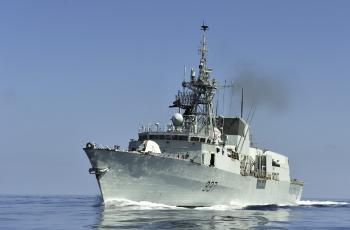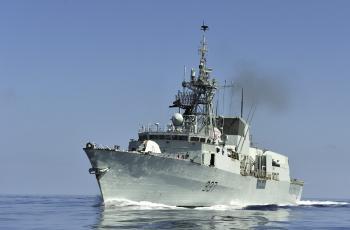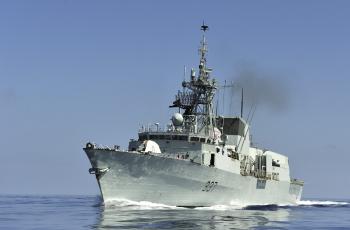Canadian Ship Assists Hijacked Crew off Somali Coast
Canadian warship HMCS Fredericton conducting anti-piracy operations assisted a ship off the Somali coast.

A skiff carrying seven pirates who attacked Norwegian tanker Front Ardenne in the Gulf of Aden races toward the Somali coast with Palomino 16, the CH-124 Sea King helicopter from HMCS Winnipeg, in pursuit, April 18, 2009. The pirates later surrendered when their skiff was seized by an HMCS Winnipeg boarding party. Master Corporal David Tillotson
|Updated:





